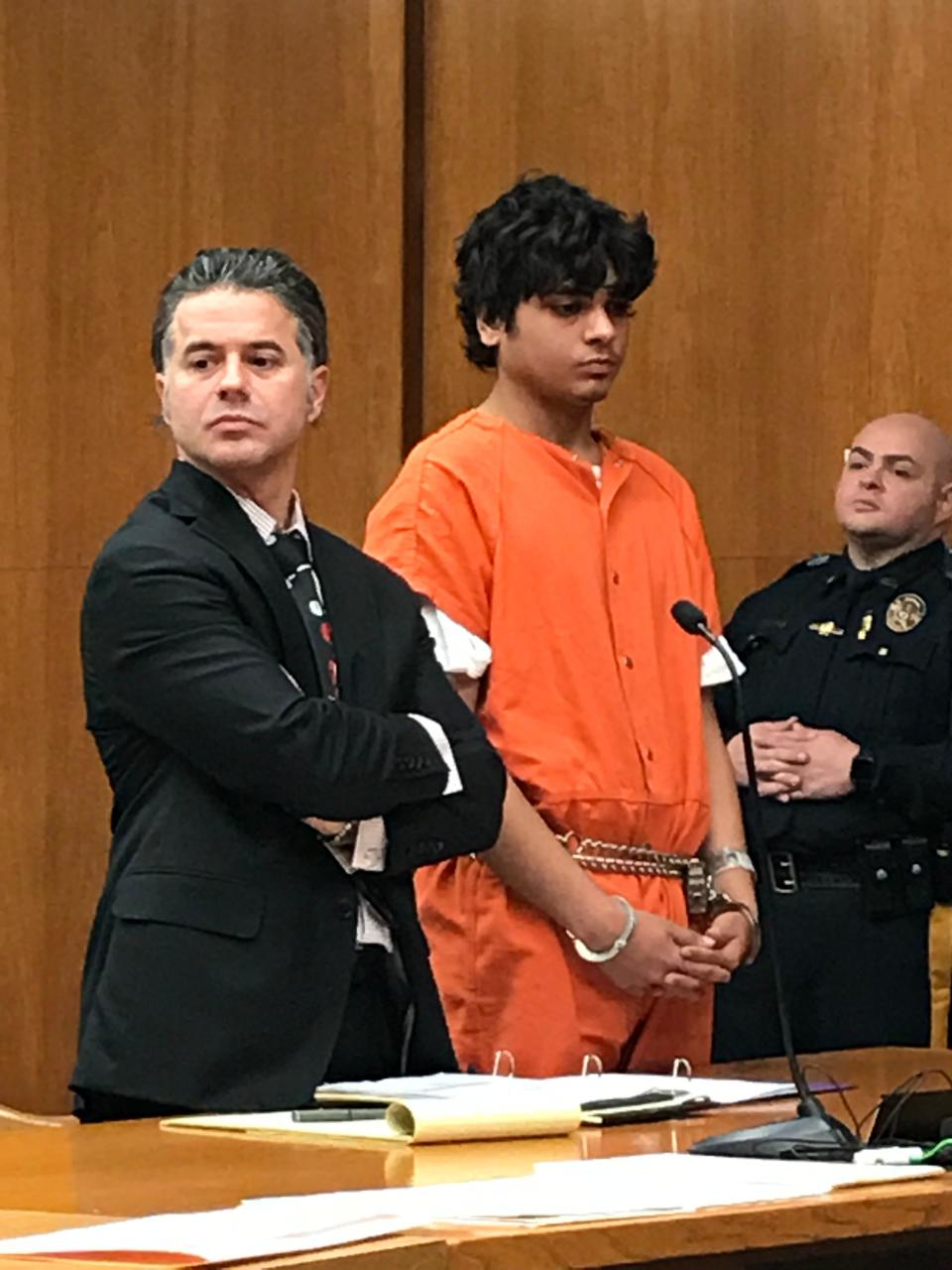Why do some criminal cases take so long to go to trial in NJ? We asked the experts
The right to a speedy trial is enshrined in the Sixth Amendment of the United States Constitution. If light of that, why do criminal cases sometimes take years to go to trial?
Criminal defense attorney Frank Carbonetti said trials are held up most of the time by the factual and legal intricacies in every case. He said each case is different.
"No defense attorney or prosecutor has just one single case they are working on," Carbonetti said. "We are working on a multitude of cases during the year, so as the case moves towards a trial, sometimes new discovery is provided."
He said new evidence or finding out what evidence the prosecution plans to use can lead to more motions and legal arguments.
"Legal briefs have to be formulated and judges must schedule those motions as well as research those issues as well as handling a complete criminal caseload on other matters," Carbonetti said.

Voluminous amounts of digital evidence present huge challenges for prosecutors and defense attorneys alike and are time-consuming to wade through, said David V. Calviello, a former prosecutor and criminal defense attorney. He said that in the last 20 years, new technologies and electronic data have exploded, causing more digital evidence to be collected.
"Cellphones are involved in virtually every single case now," Calviello said. "Cellphone data, computer data, online, social media were less available years ago."
Now it's overwhelming, especially for prosecutors and solo practicing attorneys, to go through body-camera footage, cellphone records, social media data and video surveillance from various sources to prepare for motions or trial, he said.
"The system, as of today, is still struggling with challenges that the ever-growing amount of digital discovery presents in most cases," Calviello said. "Despite best efforts, none of us are fully prepared to address that, and that is a real, palpable reason why cases are not ready for trial."
The pandemic caused a number of trial delays — contributing to increased case backlogs — which are further exacerbated by the judicial vacancy crisis in New Jersey brought on by retirements and the post-pandemic so-called "great resignation," he said.
"As a result, judges are incredibly overworked. They're working longer and harder than they ever did at any period in the history of our judiciary because of increased workloads and decreased staff," Calviello said. "They're being asked to do more with less. That's one thing that can be fixed now."
He said criminal justice and bail reform, while undeniably positive to the system, presents new challenges such as delivering on the promise of a “speedy trial” to defendants who are detained. In addition, the courts are still adjusting to criminal justice reform and the large number of cases in which people aren't being detained.
In those cases when a defendant is detained, excludable time can push back a trial date, which must start within 180 days after an indictment under reform. The term refers to periods of unavoidable delay, such as for procedural reasons or absences.
Criminal justice reform saw an overhauling of the state's bail system, allowing more people to remain free while they await trial.
North Jersey news NJ's Superintendent of the Year is from a North Jersey school
Detained defendants in the state now have more control over the pace of their cases post-reform, but non-detained defendants do not, and those cases continue to face delays going to trial, Calviello said.
"Believe it or not, not every detained defendant exercises their right to a speedy trial but opts to utilize their right to excludable time — thus further reducing the number of ready trials each month,” he said, noting that defendants ask for excludable time more than the state does.
Courts also continue to struggle to reduce the backlog of cases involving non-detained defendants, which do not have speedy trial clocks attached to them, according to Calviello.
Despite the attention courts continue to give to improving criminal justice reform, over six years later all stakeholders are still adjusting to it, Calviello said.
Besides all the moving parts that accompany the legal system, people's schedules must match up with each other.
Carbonetti, the defense attorney, said he doesn't think about speed when resolving cases.
"My job is to litigate the matter to the fullest and do what is right for my client," Carbonetti said. "I think about my clients' rights and protecting them."
He said the impact on incarcerated defendants can be tough but the court does a good job on hearing those matters first. However, the mental stress that a defendant goes through can be "taxing," Carbonetti said.
Calviello agrees but also sees delays in criminal matters as a victims' rights issue that needs more attention from policymakers.
He said victims in cases involving non-detained defendants could be waiting two years or more for their cases to be resolved, since cases with detained defendants — many of which involve victims, too — tend to be heard first.
However, the increase in the prevalence of virtual court appearances, hybrid jury selection and other technology can help free up judges to try more cases, Calviello said.
"There's no reason why we can't continue to move cases, particularly those involving crime victims, while at the same time preserve a defendant's rights to a fair trial," Calviello said. "Solutions are out there."
This article originally appeared on NorthJersey.com: NJ courts face challenges to speedy trials in criminal cases

